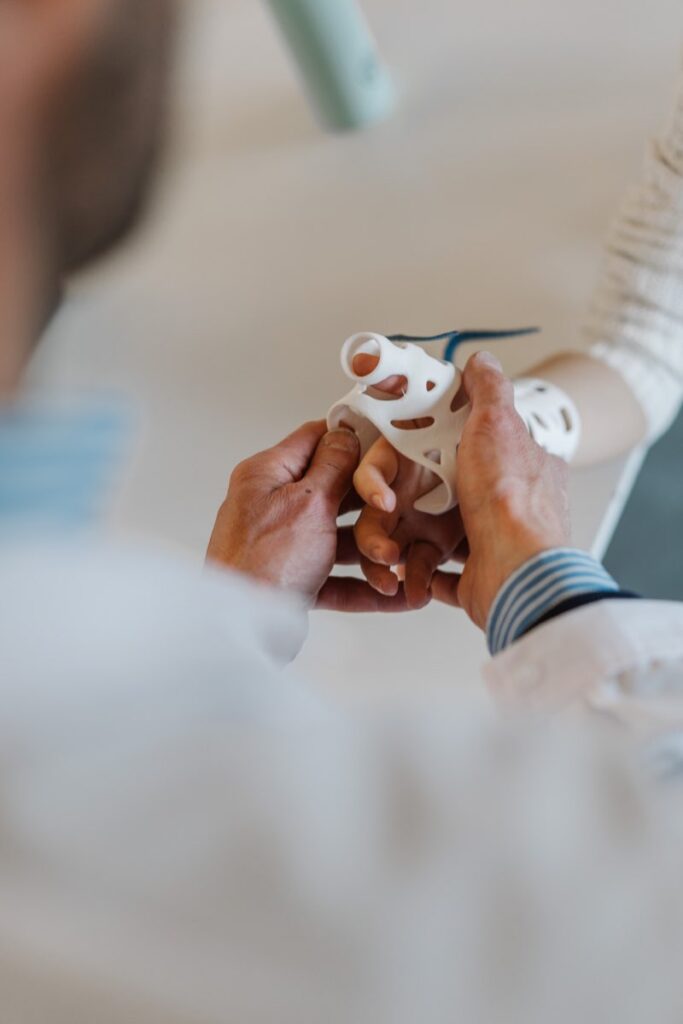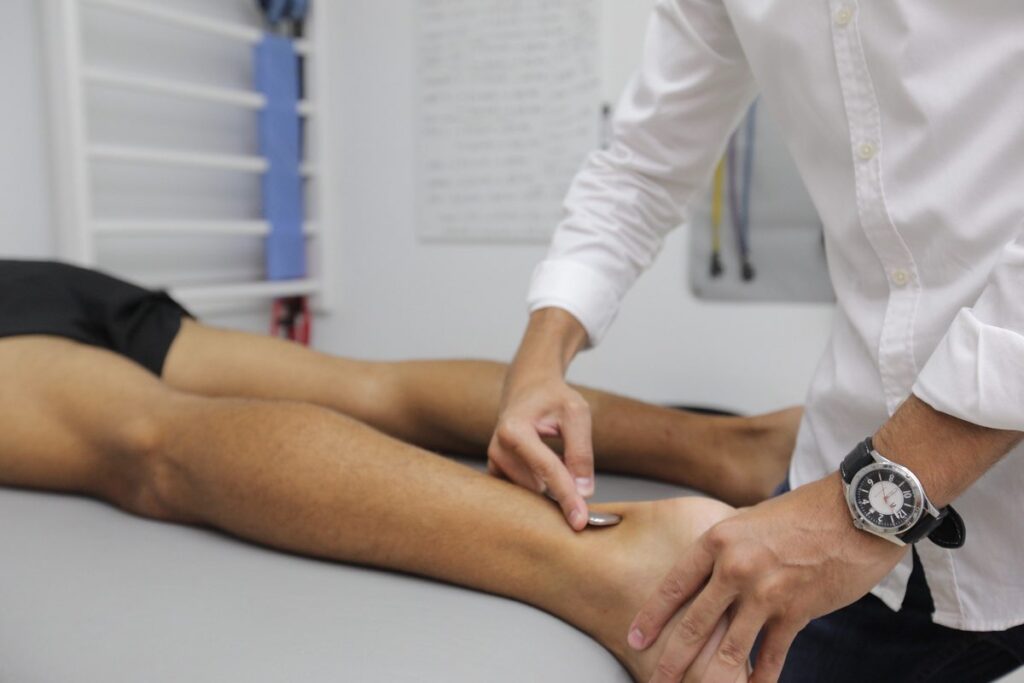What is an Orthopedic Sports Medicine Doctor?
Whether you’re an athlete, a weekend warrior, or simply enjoy an active lifestyle, orthopedic injuries are inevitable. At some point, you will likely experience an injury. According to a study published in the Journal of Athletic Training, male athletes tend to suffer more acute injuries, such as sprains or fractures. On the other hand, female athletes face a greater risk of overuse injuries, including tendonitis or stress fractures. This pattern extends to children, who experience similar injury trends. Therefore, understanding these differences is crucial to preventing and managing injuries effectively.
According to Johns Hopkins, over 30 million children and teens participate in organized sports each year in the U.S. Unfortunately, more than 3.5 million young athletes sustain injuries annually. In fact, 775,000 children under 15 end up in emergency rooms due to sports-related injuries. These statistics highlight the significant risk of injury for kids in competitive sports. To protect young athletes, it’s crucial to understand common injuries and how to prevent them.
When sports-related injuries do occur, it’s important to know the best type of doctor to see for treatment: an emergency room physician, a sports medicine doctor or an orthopedic surgeon.
For severe injuries, seeking immediate care at the emergency room is crucial for prompt treatment. However, for less critical injuries, consult a sports medicine physician or orthopedic surgeon for a thorough diagnosis. These specialists will evaluate your condition and offer tailored treatment options to ensure the best recovery.
What is Sports Medicine?
Sports medicine is not a medical specialty within itself but is a subspecialty practiced by doctors certified in primary care, family medicine, pediatrics, emergency medicine, orthopedics or another specialty. Also known as sports and exercise medicine (SEM), sports medicine has grown rapidly as the discipline is now more mainstream and accessible across the medical field.
Sports medicine extends far beyond treating only athletes. This specialized field includes experts dedicated to addressing and preventing sports-related injuries and exercise-induced conditions. By focusing on injury prevention, these professionals help patients stay healthy and active. Sports medicine also promotes overall well-being by preventing illnesses linked to physical activity. Whether you’re an athlete or simply active, sports medicine specialists ensure you stay in peak condition.
What do Sports Medicine Doctors Do?
First and foremost, a sports medicine physician is a doctor who has a medical degree in a specific branch of medicine – i.e. primary care, emergency medicine, etc. – and also specializes in SEM. After receiving certification as a medical doctor, sports medicine physicians continue on to a one- or two-year fellowship in sports medicine and then take the national Sports Medicine certification examination to receive a Certificate of Added Qualification in Sports Medicine.
Sports medicine doctors, often mistaken for orthopedic doctors, specialize in treating sports and exercise-related injuries. They focus on injury prevention for athletes, active children, and adults. These experts diagnose and treat musculoskeletal conditions, ensuring optimal performance and recovery. Additionally, they provide personalized care plans to help prevent future injuries and maintain long-term health.
Common sports medicine treatment and practice:
- Non-surgical orthopedic diagnosis and care
- Musculoskeletal conditions
- Fractures and breaks
- Tears
- Tendonitis
- Sprains
- Strains
- Joint injuries
- Casting and bracing
- Sport physicals
- Concussion management
- “Return to play” decisions for injured athletes
- Cortisone injections
- Ultrasound-guided injections
- Regenerative medicine
Many sports medicine doctors not only maintain a regular practice but also serve as team physicians. They often work with professional, amateur, and high school sports teams, ensuring athletes receive top care. Additionally, these doctors provide injury prevention strategies, rehabilitation programs, and medical guidance. By working closely with teams, they help optimize performance while reducing the risk of injury. Their role as team physicians allows them to address both acute and chronic conditions in athletes at all levels.
Sports Medicine Doctors vs Specialists
Though the terms “doctor” and “specialist” are used interchangeably in many medical fields, there is a significant difference between the two distinctions when it comes to sports medicine. As explained above, sports medicine doctors are certified physicians who went through medical school, as well as additional training in sports medicine. A sports medicine specialist, however, is not always a physician.
While many sports medicine specialists assist in the medical, therapeutic and functional aspects of SEM, these non-physician SEM professionals include physical therapists, nutritionists and athletic trainers.
Sports Physical Therapy and Sports Medicine
One non-physician sports medicine specialty is integral to the practice of SEM: physical therapy. While all physical therapists can help their patients recover from an injury or orthopedic surgery, sports-focused physical therapists specialize in exercise science and biomechanics – i.e. the physiological aspects of sports and exercise. In addition to focusing on athlete recovery, sports physical therapists create personalized post-injury treatment plans and sport- and athlete-specific prevention plans.
Sports Medicine Doctors vs Orthopedic Surgeons
In general, sports medicine doctors and orthopedic surgeons treat a lot of the same patients and injuries. In fact, most sports medicine clinics are part of larger orthopedic practices that include surgeons, sports medicine physicians, physical therapists, nutritionists and athletic trainers.
The biggest difference between sports medicine doctors and orthopedic surgeons is surgery and the additional education. While a sports medicine physician undergoes one or two years of fellowship, an orthopedic surgeon is required to complete an orthopedic residency that lasts five years. Most orthopedic surgeons then go on to complete a fellowship focused on a specific orthopedic specialty, such as foot and ankle, knee, shoulder, hand and wrist, etc.
Advanced Orthopedics and Sports Medicine in Salt Lake City and Park City
Heiden Orthopedics has two Utah centers for sports medicine and orthopedics in Salt Lake City and Park City, as well as orthopedic clinics in Draper and Tooele. If you have any questions about a sports injury or would like to speak to a sports medicine physician or orthopedic surgeon, please contact us.



2 Comments
Permalink
Great info on sports medicine. Keeping athletes healthy is so important. keep it up this article.
Permalink
i read this article it was very useful for every athelete and sports person.